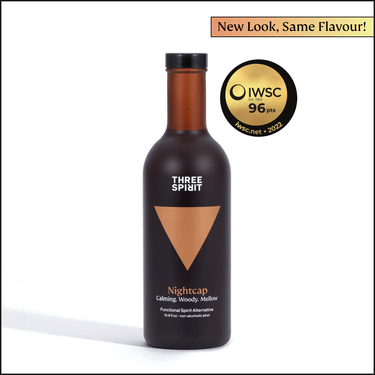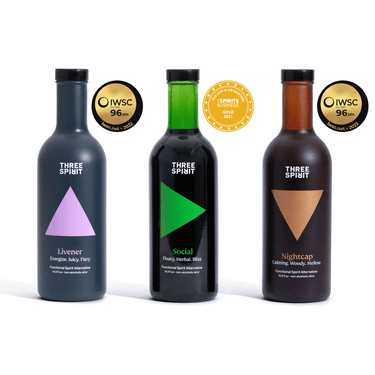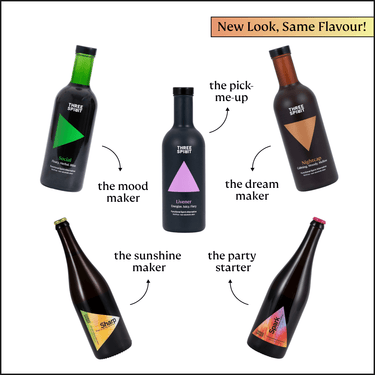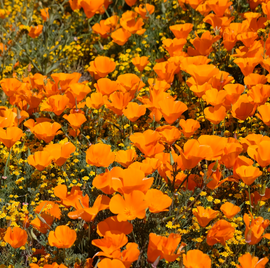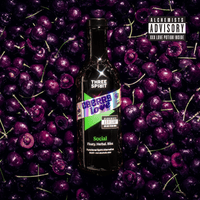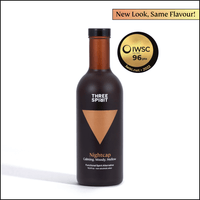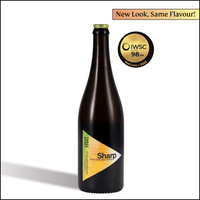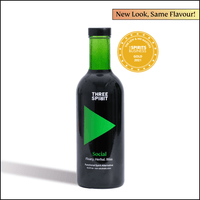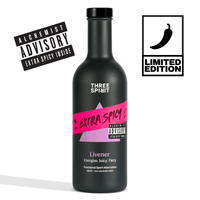Do what we now call functionals have a long history?
Absolutely. Nothing new about functional foods, drinks and ingredients, they have been a key part of human (and animal) evolution for many thousands of years. Indigenous cultures have long known and understood the value of the plants around them, whether used for medicine, nutrition or state changing properties. Most people will understand function through thinking about tea, coffee tobacco and alcohol; the big hitters of the functional world. All are undeniably functional and have a clear effect when consumed. Whether these substances are healthy or not depends on how they are used. The human population is largely addicted to caffeine in the form of daily consumption of tea and coffee. Some of us can not really operate without this fix, which is mad when you think about the fact that tea and coffee did not exist in the Western world until the last 400 years thanks to trade opening up with China and East Africa. Cacao, the raw form of cocoa / chocolate, predates tea and coffee in Europe and is one of the best functional drinks around, providing small amounts of caffeine but large amounts of theobromine which can stimulate mood and energy in desirable ways.
With all of this being said, people have been making and consuming alcohol as an effective functional beverage for much longer than, well, anything! Low ABV ale was safer to drink than water in medieval times in Europe and so children and adults would drink this rather than polluted water (if they were lucky). If we really want to go back in time, it has been shown that apes have sought after fermented fruit and fermented coconut nectar as a way of becoming inebriated and some theories suggest the leap in cognition from ape to man was assisted by this mind altering effect of ethanol and other psychoactive plants and fungus.
It is also worth mentioning that there are many other cases of humans using plants in drinks or infusions to promote other beneficial states. Valerian root for sedation, wormwood/gentian for digestion, nettle leaf, rose hip, echinacsea or manuka for immunity etc. etc. These functions aren't new discoveries.
So, in short (if I can say that at this point) yes functional ingredients have been a main stay in drinks for millennia. Whether fermenting to make bad water more safe to drink, drinks that can stimulate and energise, drinks that can ward off illness, drinks that can calm and relax, it's been there.
Traditional Chinese Medicine (TCM), Ayurvedic tradition form India/Asia and shamanic practices from the Americas have lead the way in understanding and utilising the desirable properties of plants for functional benefits long before western medicine existed. I think what we are seeing is a new appreciation for these ancient traditions but repositioned for a new modern audience, especially in the west.
When did the ‘modern functionals’ revolution (ie as artisanal sophisticated drinks) start?
I think that the global wellbeing trend that has grown and grown since perhaps the start of this century is the starting point for this ‘modern functionals’ revolution. A growing focus on wellness has moved into our culture and been accelerated by social media, smart phones, reality TV etc. Trends in functional foods, diets, fitness, mental performance and longevity often originating in California or Australia have grown and grown. Energy drinks hit the market hard and then eventually have started transitioning into ‘clean/healthy’ energy drink formats utilising more interesting and natural ingredients rather than synthetic flavours and additives.
Ironically, the non-alc spirit revolution absolutely began in the UK thanks to Seedlip. So what we find very interesting is the rapid growth of non-alc originating in the UK meeting the relatively mature trend of functional drinks from the USA/Asia. It means that being a functional NA product is an exciting place to be right now.
I think post-2010 we saw massive growth in wellbeing functional drinks such as coconut water. This allowed consumers to understand the ‘reason’ to consume a product - for hydration or recovery for example. I think that we are seeing more and more functional products which are now trying to address stress in a world which is dominated by global tensions, homogenous society, overexposure to screens to name just a few reasons... The CBD and other adaptogens trend has really blown up, used as a method to combat stress and mental fatigue in a more gentle way than alcohol, smoking or coffee has.
What are the key sub-categories of ‘functional’? I’m thinking nootropic and adaptogen, but wonder if there might be more.
I would say mood modulation, stimulation, relaxation are the main areas within the current NA drinks space. Immunity and gut health is also massive but perhaps not being serviced so much as alcohol replacement etc. Kombucha of course (if made correctly) is a good prebiotic and is good for gut biome. Plenty of NA drinks have plant ingredients that have historically been used for their immunity boosting properties, though claims cannot be made here.
Nootropics could be classified as anything promoting increased mental performance. Caffeine is a nootropic, as are lions mane mushroom and theobromine (from cacao) that we've put in our Social, and l-theanine (green tea extract) that is a part of our Livener's makeup.
Adaptogens are a class of plants that address our stress hormone cortisol. Adaptogens such as ashwagandha and lemon balm in our Nightcap, schisandra in our Livener, or clary sage in Sharp can help regulate the cortisol levels in the body to reduce physical stress and promote a more balanced state. They can also help raise energy levels if one is feeling lethargic.
So yes - one could class functional categories as: adaptogens, nootropics, immune boosting, gut health, relaxants, stimulants etc.
Are there easy ways to understand these differences? And where would something like CBD fit in?
Hopefully I have answered this above… but yes, by using scientific analysis and research we can identify how these different classes of compounds affect animals and humans etc.
CBD is a strange example as it is both an amazing compound that can absolutely be effective in treating pain and restlessness, however it has been banded around for a decade now as a snake oil, heal all placebo. This can be confusing for consumers and leads to a lack of trust… With so many brands competing with one and other saying their CBD is the best and everyone else’s is bogus, I feel sympathy for anyone curious about CBD for the first time and giving up on trying it out quickly. But CBD is just one compound in a huge landscape of functional plant extracts that we should be utilising and celebrating.
Alcohol obviously has a very obvious (and quite quick) effect on people. Are functionals a) slower, and b) less consistent in their impact? Eg some people might not be affected much, others a lot more.
Correct. Many of the functional ingredients mentioned above are more gentle in their effect compared with ethanol and will not be intoxicating, poisonous or so fast-acting. Having said that caffeine gets to work very fast and is very powerful. Just as with alcohol, people have very different tolerances to caffeine so some may not feel it much and others will have a bad reaction or will not be able to sleep if they have consumed caffeine after midday. It's the same with all other functional plants, really. CBD may make some people feel sleepy while others it will not have a noticeable effect. Active doses of functional ingredients are very important and are calculated with research and often a calculation on bodyweight. Not all functional drinks are created equally so some may have trace amounts of the functional compounds of interest and others may have larger doses which are more effective.
Adaptogens can take a longer time to kick in and can be best when used on a daily basis, or even built up over time, but that does not mean that they can not be effective in the moment. One must consider the ‘entourage’ effect of functional blends such as There Spirit, as there are many different ingredients working together to deliver a desirable effect. For instance we have products with high levels on natural caffeine - Livener and Spark - but we always twin this with a high dose of l-theanine which complements the ‘buzz’ of caffeine offering a more clam and focused stimulation rather than overly alert and uncomfortable.
Are there any big ingredient or flavour styles developing? I know ashwagandha is popular, for instance.
There are loads of trends in functional plants for their reputation and potential benefits. It's a bit like with food, remember how blueberries were the biggest thing? Then turmeric lattes? But yes, ashwagandha is certainly one, and a good one at that. Tis could be due to the amount of investment and promotion some ingredient suppliers, such as KSM-66, have put into quantifying and selling this ingredient and showing scientific data to support claims. I do not think that functional trends are translating into flavour trends though, so far they are mostly separate. So a functional drink will have a function ’stack’ and then a separate flavour profile. I think this can be a challenge for functional drinks - you have to provide both spectacular flavour and function, but flavour can sometimes be left behind...
The exception here is maybe CBD drinks and NA spirits. Some have leant into the flavour or hemp and CBD which I think is really interesting but the market suggests that many do not like the flavour so most CBD products got to great lengths to mask the taste of the actual active compound. Part of the challenge when working with real functional plant extracts in high doses is marrying flavour and function. It is a skill and something to celebrate in my opinion. Luckily, Three Spirit's research and development has paid off; we're award-winning and every day Steph, our Head of Customer Care, is sharing wonderful reviews and feedback from our customers.
Here's to the revolution.



